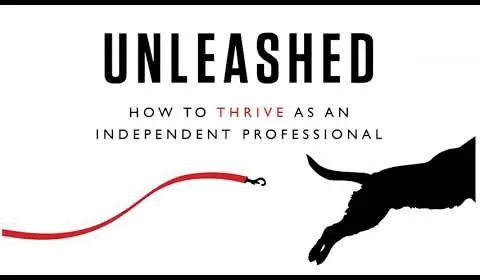What is Change Management, and How Can Your Sales Team Benefit From It?

Fresh off our extensive look at sales enablement, we’re beginning a new series of deep dive posts by examining the topic of change management. Like sales enablement, change management is a broad umbrella that covers a lot of different areas in sales.
The short version: Change management is all the processes and steps involved in helping an individual, team, or organization to make changes.
The longer answer: Change management involves all the minutia that goes into effecting change on every level of an organization – from the planning stages to the implementation to the follow-up. In terms of sales, that can mean the individual sales rep or manager, the entire sales team, or the whole organization.
Why is change management important? Because change management is a clearly defined and outlined systematic set of steps, processes, and procedures that formalizes how to get from Point A (your starting point) to Point B (the desired change). As you can imagine, something as involved as this has a lot of potential pitfalls where things can go awry. So, much like your formal sales process, it’s essential to have a formal change management process to help guarantee that those changes take place and are permanent shifts. When we discussed sales enablement, we used the concept of larger sub-areas in most of our posts as a way of breaking down how enablement applied to your organization – looking at technology, marketing content, and knowledge and information. We’ll be following a similar process for change management: specifically, we’ll be looking at the subject from the viewpoint of the individual, the sales team, and the whole organization.
The Individual Sales Professional
On the individual level, change management is a process that helps you to unlock the best out of each single team member. But to be successful at it, you can’t simply point to data and say, “You have to improve numbers in this area.” That simply tells the rep what they already know – that they’re not meeting the desired end result, which they can see for themselves.
Rather, change management for an individual sales rep is about discovering *why* they’re not meeting a given KPI and what they need to do in order to address the root cause and change their behavior. The numbers can tell you that there’s a potential problem that needs to be addressed. What it doesn’t tell you is what that problem is or the steps to take to solve the issue. That’s where change management comes in.
So if data merely alerts you to the possible existence of a problem, how do you figure out what the issue is? Talk to the sales rep. If they have even a modicum of self-awareness, they’ll be able to provide you some insights. Reviewing sales calls and activities with them (e-mails are an example of the latter) can also function as excellent diagnostic strategies to locate the exact problem.
Once you’ve identified the real root of the problem, talk together about ways it can be handled. Role-play scenarios where they’re tasked with improving on a behavior, training if it’s a knowledge or skill gap, reinforcement tools if it’s a learned skill that’s still being implemented – these are all possible pathways to changing behavior and improving the sagging results.
Keep in mind, behavioral change needs consistent reinforcement to stick long-term. The cliche about it taking 21 days to change a habit is incorrect, by the way. The research demonstrates a vast range – from as little as 18 days to as many as 254 days (almost an entire year!), depending on the particular habit. The average is 66 days – which is one of the reasons why we conduct 90 day follow-ups to our training event – it takes into account the 66 day average and more to get an accurate read on whether the desired behavioral change has truly stuck. Important note: This applies to every level of change management we’ll be discussing. We mention it here because it’s our first opportunity to refer to it. Keep it in mind for the other two levels we’ll be discussing.
The Entire Sales Team
Much like with the individual sales rep, change management on the team level is about maximizing the potential of your whole team – whether by correcting team-wide deficiencies or boosting their capabilities with the implementation of various forms of sales enablement as we discussed in our previous long-form series.
Here, your most likely initial discovery of where deficiencies exist will either be the numbers, aggregate data from one-on-one conversations with your sales reps, or in feedback from buyers (such as in discovery conversations about why your team lost a deal).
Unlike with the individual sales rep, where the solution will be one-on-one and involve either coaching or training, solutions at the team-wide level will likely involve a combination of training, coaching, and/or implementation of enablement strategies and tools. What exact arrangement will be best suited depends on the nature of the identified problem.
Struggles with timing the ask in the close? Likely coaching and reinforcement. A transactional sales mindset as opposed to consultative Trusted Advisor best practices? Training, followed by coaching and reinforcement. The team failing to meet call quotas? Likely technology enablement, such as auto-dialers, with training and reinforcement to follow.
Change management for an individual sales rep is about intensive, micro-level refinement. Change management for an entire sales team can involve intensive coaching and reinforcement or larger cultural shifts (such as the adoption and integration of new sales enablement strategy). I’m sure you can guess what’s coming next as we move upwards to the whole organization.
The Whole Sales Organization
Change management for the whole sales organization is about a large cultural shift. Here, we find our focus on global considerations and issues, such as ensuring your entire sales force has a common, universal language across all divisions, regions, and countries (the latter in the case of MNCs).
This type of major project is something that we specialize in and have a long track record of success with. You can view some case studies that involve these sorts of projects here.
To return to the original thread, change management involving the entire sales organization is about vast, sweeping innovations that – done correctly – will uplift the whole company and often represents the largest possible ROI. Note the emphasis on done correctly. If change management for this type of endeavor is poorly conceived, designed, or executed, it will result in a tremendous waste of major resources.
Naturally, this raises of the question of how to implement such a mammoth venture. As with the first two levels, it starts with research. Input from sales reps, sales team managers, and buyers in the target markets are all part of this process – with information flowing upwards to the senior sales leadership and C-Suite level. This also involves studying how the various regions or countries differ from each other in terms of buyer behavior so that when you move to the design phase, you’re able to accurately adjust and account for those identified differences – whether it’s language, culture norms, or some other aspect of communication and behavior to take note of.
Unlike with the previous two levels, where there’s traditionally a one-off training event followed by repeated, recurring modes and methods of reinforcement, at this level, there’s often multiple events occurring over weeks and months. So not only do you need to plan for the content of your slightly different deliveries to each region (making sure, for example, that your roleplays and case study scenarios are appropriate to that region), but you need to strategize the days, times, locations, and methods of delivery to all of these different sales teams.
As you can imagine, even if you have a robust in-house training and development division, something like this – that occurs at the highest strategic level – makes hiring an outside sales performance vendor to research, design, facilitate, execute, and reinforce the change management across your whole organization is an excellent option to consider. After all, the right solutions provider will have experience in handling a project of this scope and delivering the kind of results – both from an ROI standpoint and that of realizing permanent sales behavior changes across multiple divisions.
Just as importantly, a skilled and accomplished outside solutions provider will help you navigate this endeavor in a way that saves time and demands less overall resources than attempting to do it in-house – helping you create excitement and buy-in across the various divisions even before the actual events (such as sales training) that signify the rollout and changeover from the old way of doing things to the new.
While a sales performance provider is certainly an option at every level, it’s at this highest, third one that it becomes almost a necessity to lock in the kind of ROI guarantees and resource savings that will make this sort of change management a fail-proof and secure investment. The risks of things going awry internally are frankly too great when you consider everything that’s involved in a program with this many individual, moving parts – each of which is essential to the successful execution of the whole.
Whether you’re looking to address issues with the individual sales rep, your local sales team, or the entire organization, change management is a valuable and vital process to continued growth, development, and sales success. It involves the foundational stages of research, solution design, delivery of solution, and reinforcement of solution to effect desired and needed change.
So if you aren’t already thinking about modifying and improving sales behaviors and processes with a change management process, you should start now. It will make a major difference in the outcomes of your sales-related processes.

- Account Planning (11)
- Awards (52)
- Client Testimonial (37)
- Personal Branding (19)
- Podcast (11)
- Research (70)
- Sales Career Development (85)
- Sales Coaching (154)
- Sales Consulting (133)
- Sales Culture (164)
- Sales Enablement (346)
- Sales Leadership (110)
- Sales Management (243)
- Sales Negotiation (16)
- Sales Prospecting (120)
- Sales Role-Playing (18)
- Sales Training (233)
- Selling Strategies (256)
- Soft Skills (67)
- Talent Management (92)
- Trusted Advisor (27)
- Virtual Selling (42)
- Webinar (12)




























